News
ODIN project to study Vitamin D
29 Jan 2015ODIN is a 4 year collaborative project with partners from all over Europe and one from the USA. The coordinator of the project is UCC and other Irish partners include the Daithi O’Murchu Marine Research Station, UCD, Crème Software Ltd (Dublin) and Monaghan Mushrooms. There are a number of topics under study in ODIN, which […]

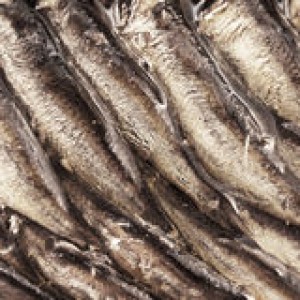 ODIN is a 4 year collaborative project with partners from all over Europe and one from the USA. The coordinator of the project is UCC and other Irish partners include the Daithi O’Murchu Marine Research Station, UCD, Crème Software Ltd (Dublin) and Monaghan Mushrooms.
ODIN is a 4 year collaborative project with partners from all over Europe and one from the USA. The coordinator of the project is UCC and other Irish partners include the Daithi O’Murchu Marine Research Station, UCD, Crème Software Ltd (Dublin) and Monaghan Mushrooms.
There are a number of topics under study in ODIN, which include:
- Vitamin D status: distribution of standardized vitamin D concentrations in European populations
- Dietary exposure to vitamin D in European populations
- Sunlight exposure: risk-benefit analysis – implications for vitamin D requirements
- Dietary requirements for vitamin D during pregnancy, childhood and adolescence
- Food- and food-technology-based solutions for prevention of vitamin D deficiency
- Proof of effectiveness of food-based solutions to prevent vitamin D deficiency
- Vitamin D and health outcomes in pregnancy and early life
- Vitamin D and health outcomes in older adults.
The main source of vitamin D is sunlight. However, countries in northern latitudes (greater than 37.5-40º) do not get sufficient sunlight to naturally create vitamin D, particularly in the winter. The period of time when the angle of the sun is too oblique for the UVB rays to pass through ozone, and therefore little or no vitamin D can be dermally synthesized, lasts about 5 months in Ireland. The heightened awareness of the risks of skin cancer also means that people are more likely to keep out of the sun, cover up and wear sunscreen which again limits the body’s ability to produce vitamin D. Correct application of SPF15 reduces the skin’s natural ability to synthesize vitamin D by 93%. A number of other factors also limit one’s ability to obtain enough vitamin D through UVB exposure. These include long working hours spent indoors, the amount of melanin in your skin (i.e. darker-skinned individuals are not able to synthesize as much as a lighter-skinned person exposed to the same level of UVB rays) and age (dermal synthesis of vitamin D is not as efficient in older adults).
A solution to this problem can be found in the diet. There are a number of foods which naturally contain vitamin D and these include oily fish, meat, dairy, egg yolk and mushrooms. Depending on a country’s legislation, some foods are also fortified with vitamin D and these include milk, yoghurt, spreads, cheese, juices, bread and cereal. The problem with this is that by fortifying a product such as milk, you are only targeting those who a) drink milk, and b) drink enough of it to make a difference to their vitamin D levels. Studies have shown that intake of vitamin D from fortified foods is very low. Vitamin D is also available as a dietary supplement in tablet form, but of course taking a supplement is voluntary and uptake tends to be low amongst children, adolescents and young adults. Sustainable fortification strategies which incorporate a range of foods have the potential to increase vitamin D intake and reduce deficiency.
DOMMRS’ role in this project is to fortify Atlantic salmon with vitamin D. This is important given that the World’s wild fish stocks are being overexploited resulting in growth in the aquaculture industry in Europe. It has been found that farmed salmon do not contain as much vitamin D as wild salmon due to differences in their diets. DOMMRS are using 4 different levels of vitamin D over a period of 3 months to determine how inclusion of additional vitamin D in their diet will translate into their flesh. Further studies will examine whether vitamin D from fish is more effective than vitamin D from supplements.
ODIN will also be investigating technological advances for improving the vitamin D content of mushrooms (which, when in powder form can be incorporated into other novel foods), yeast, eggs, beef, pork and fresh-water fish.
Expected outcomes of the project include:
- The primary task of the ODIN project is to create 25OHD (25-hydroxyvitamin D) unified analytical platform and Vitamin D Standardisation Program (VDSP).
- Meta-analyses and individual subject-level meta-regression analyses to integrate standardised data on vitamin D status will be conducted.
- Proposed innovative food-based solutions to increase vitamin D in the food supply chain via the combination of bio-fortification of model foods will be developed on strong evidence bases. Four Randomised Clinical Trials in pregnant women, children, teenagers and ethnic immigrant groups will be carried out.
- Dietary modelling and novel foods at the same time might be able to meet the expectations of consumers, clinicians and industry.
Related news
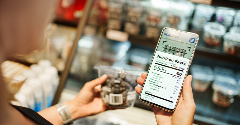
Has ‘clean’ had its day?
22 Dec 2025
Wielding clean-label positioning and fortification as marketing levers is a dangerous strategy, and brands would be better off explaining the hows and whys of the ingredients in their products, say experts.
Read more
Celebrating the winners of the Fi Europe Innovation Awards 2025
3 Dec 2025
Food industry stakeholders celebrated as the winners of the Fi Europe Innovation Awards were announced at a ceremony in Paris.
Read more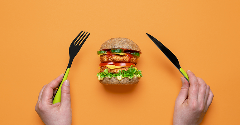
Alternative protein startups pivot to B2B ingredients amid funding shift
27 Nov 2025
Alt protein startups are pivoting from consumer meat analogues to high-value B2B ingredients, driven by stronger investor interest, better margins, and clearer commercial pathways.
Read more
Walmart Marketplace’s record growth prompts search for UK sellers
26 Sep 2025
Walmart’s third-party e-commerce platform, Marketplace, has witnessed extraordinary growth – but a need for more product diversity has prompted the retailer to recruit UK sellers.
Read more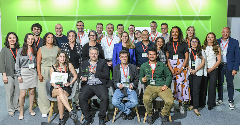
The winners of Vitafoods Europe Startup Challenge 2025 revealed
29 May 2025
Four startups – Yomio Drops, PFx Biotech, Revobiom, and Favamole – took top prizes at this year’s Vitafoods Europe Startup Challenge awards.
Read more
East takes on West in the fight for future food flavours
30 Apr 2025
Asian and South American flavours are now key components on global menus, driven by a growing global appetite for culinary mashups.
Read more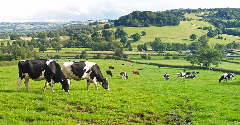
Food companies urged to bring ‘joy’ and urgency to healthy food mission
14 Mar 2025
For too long, businesses have treated health and sustainability as separate agendas – but there is growing evidence to show diets that benefit human health can also enhance that of the planet, say experts.
Read more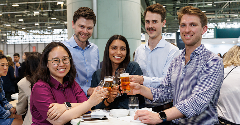
Entries open for inaugural Vitafoods Europe Innovation Awards
29 Jan 2025
Entries are open for the inaugural Vitafoods Europe Innovation Awards, celebrating the ingredients, finished products, partnerships, and initiatives redefining the nutraceutical landscape.
Read more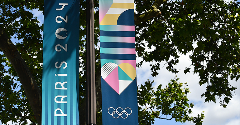
Paris Olympics: Food and beverage brands champion health, fun, and sustainability
5 Aug 2024
Food and beverage brands are aligning with the Paris Olympics 2024 Food Vision, which emphasises sustainability, local sourcing, and plant-based diets.
Read more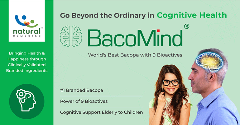
Natural Remedies: Bringing health and happiness via validated branded ingredients
18 Apr 2024
Natural Remedies is an internationally renowned botanical healthcare company committed to advancing the field through rigorous research and the development of clinically validated Branded Ingredients. Guided by our foundational principle of ‘BEING USEF...
Read more